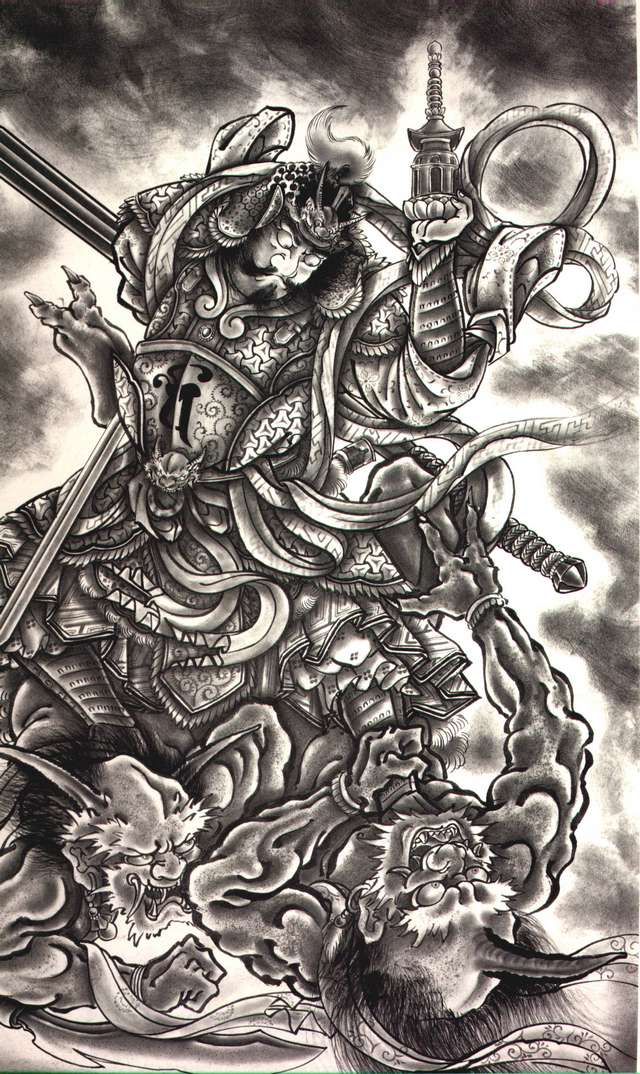
In the “The Book of 5 Rings”, Musashi encourages the reader, the sword-master, to stay in the middle mind. His recommendation is not to let the mind move too far in any one direction, but to make decisions from a central place. And that place in combat is where all discoveries are made. It’s a sort of neutral place, a moment when your mind and body are in unison. So if we’re talking about someone swinging at 3 foot razor at your head, which was the warriors way during that time, there’s an urgency to good decision making. Musashi’s advice is to cultivate this “middle way” in order to be able have to deal with that problem effectively.
He goes on to say that in that mental place, time is no longer linear. It’s possible to can see all things at once. You can see the past, present and future; you can go right to the intention of your partner when they’re swinging that razor – whether it is at your head or your stomach or your Achilles tendon. Typically we don’t think like that. We conceive of time like language, moving forward in succession. But in combat, with the middle mind, it’s possible to discover time in a non-linear way. We can have ideas flowing that solve problems before they happen. He talks about stopping the attack at the letter “A”, not at the letter “K”. It can happen at the beginning rather than at the end.
So how does one do that? Well, we don’t know except through our own experience. Musashi himself is speaking out of a lifetime of practice, drawing on his own experiences. We can stop trying to anticipate the future and stop dwelling deeply on the past. When we enact that shift, it moves us past urgency and into clarity. The exterior world doesn’t need to change, either. These decisions happen in mind.
This skill is still relevant for us because we have the same experiences, just in a different context. It can happen when you’re driving, and you have a moment of distrust for the person four cars ahead, who’s driving a little erratically. Or when you’re on the subway and you get the sense that something is up at the other end of the car – conversation has gotten suddenly louder, or quieter, or everyone else has left the car except for you.
We can grow sensitive to when doubt occurs in our consciousness, and then noting it and responding to it. That’s why it’s applicable – it’s the middle spot from which we can perceive, adjust and act clearly. We don’t go right away into anger or apathy or some other extreme of emotion. We become unburdened, and discover the freedom to make better decisions from that place.
For more about our larger project of collaborative Jiu-Jitsu and martial arts training, visit the Brooklyn Brazilian Jiu-Jitsu (Brooklyn BJJ) website here.